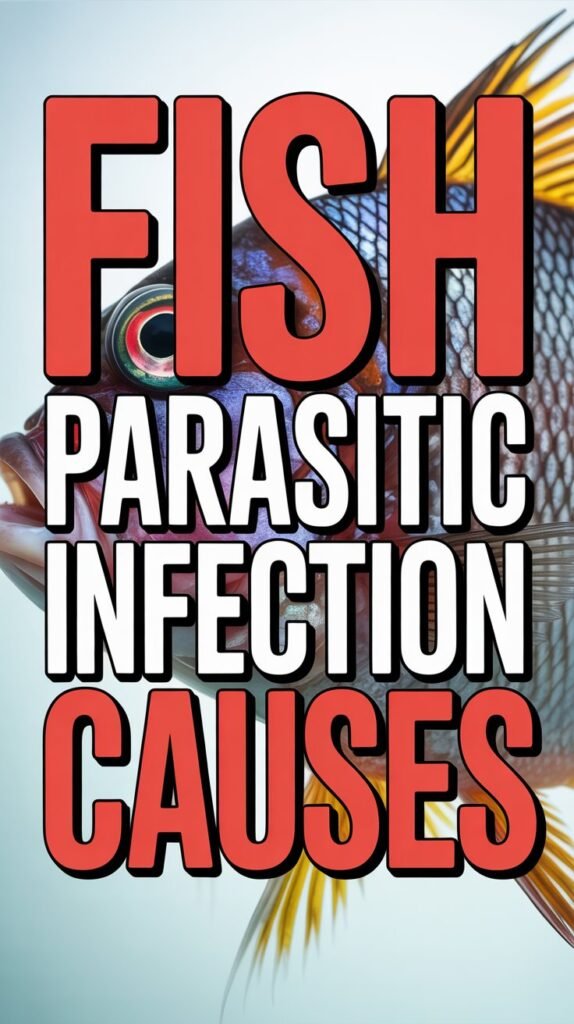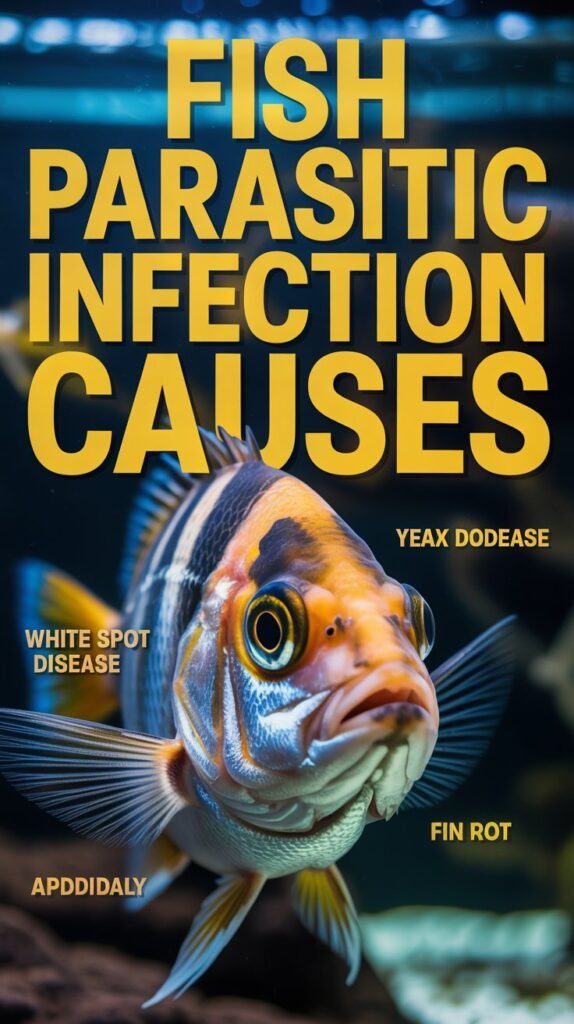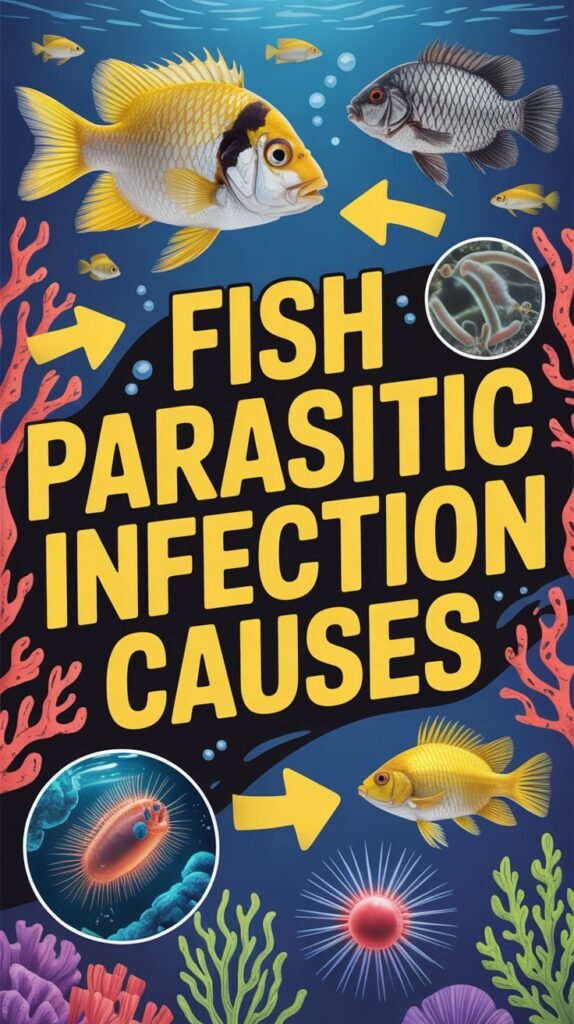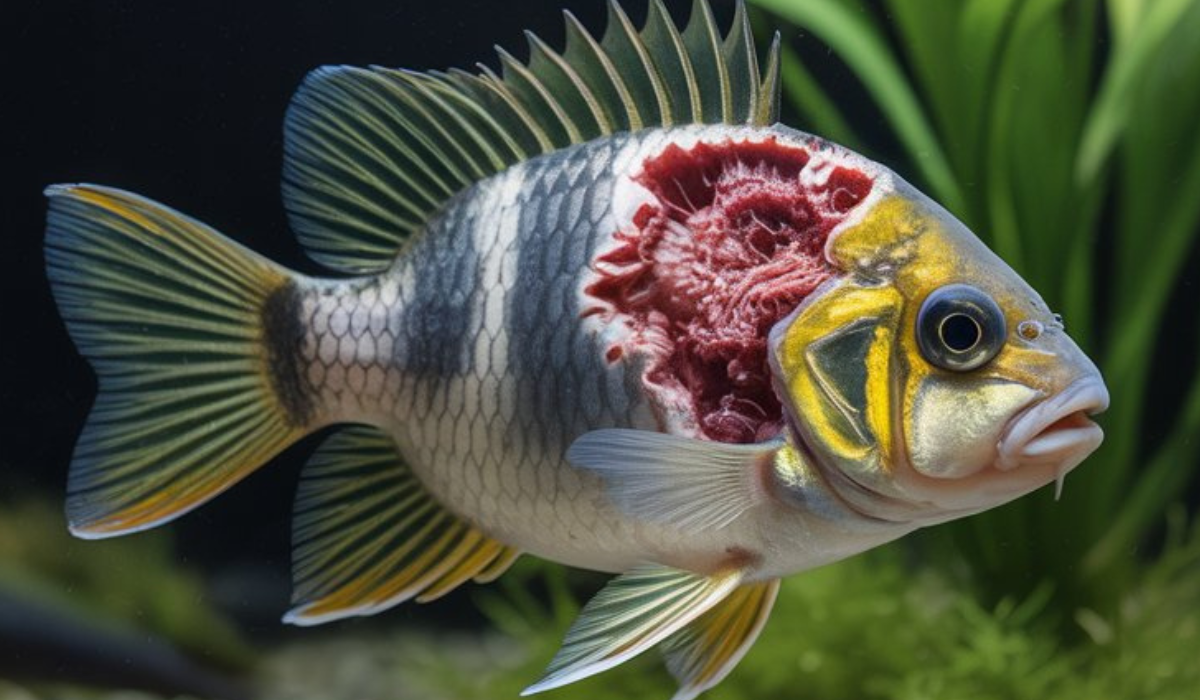Parasitic infections are among the oldest and most widespread health problems known to humans and animals. From microscopic protozoa to visible worms, parasites have evolved to survive and reproduce inside their hosts, often causing serious health complications. Understanding parasitic infection causes is essential for preventing and managing these conditions effectively.
In this comprehensive guide, we’ll explore what parasitic infections are, how they spread, their major causes, types, symptoms, and prevention methods to help you safeguard your health and well-being.
What Is a Parasitic Infection?
A parasitic infection occurs when a parasite invades and lives inside or on another organism — the host — deriving nutrients at the host’s expense. Parasites can cause a range of diseases in humans, animals, and even plants. Unlike bacteria or viruses, parasites often have complex life cycles, sometimes involving multiple hosts or environments.
There are three main types of parasites that infect humans:
- Protozoa: Single-celled microscopic organisms (e.g., Giardia, Plasmodium, Entamoeba histolytica).
- Helminths: Multicellular worms such as roundworms, tapeworms, and flukes.
- Ectoparasites: Parasites that live on the body’s surface, like lice, fleas, ticks, and mites.
Understanding Parasitic Infection Causes

Parasites thrive in specific environments and spread through various transmission routes. Below are the main causes and sources of parasitic infections.
1. Contaminated Food and Water
One of the most common causes of parasitic infections is consuming contaminated food or water. Poor sanitation and improper food handling allow parasites to enter the digestive system.
Examples include:
- Giardia lamblia from unfiltered or untreated water.
- Entamoeba histolytica (causes amoebiasis) from contaminated food.
- Taenia solium (pork tapeworm) from undercooked pork.
- Trichinella spiralis from raw or undercooked meat.
How it happens:
- Using untreated or contaminated water for cooking or drinking.
- Eating raw or undercooked meat, seafood, or vegetables.
- Cross-contamination during food preparation.
Prevention:
- Always boil or filter water before drinking.
- Cook meat thoroughly.
- Wash fruits and vegetables with clean water.
- Avoid street food in areas with poor hygiene standards.
2. Poor Personal Hygiene
Parasites spread easily when personal hygiene practices are neglected. Dirty hands, unwashed bedding, or contaminated clothes can serve as breeding grounds.
Common examples:
- Pinworms (Enterobius vermicularis) transmitted through contact with infected surfaces or hands.
- Lice and mites spread through shared personal items like combs, hats, or towels.
Prevention:
- Wash hands before eating or preparing food.
- Keep fingernails short and clean.
- Bathe regularly and wash clothes with hot water.
- Avoid sharing personal grooming items.
3. Insect and Vector Bites
Many parasites are transmitted by insects and vectors such as mosquitoes, ticks, and flies. These insects act as carriers, transmitting parasites through their bites.
Common vector-borne parasites:
- Plasmodium spp. (causes malaria) transmitted by Anopheles mosquitoes.
- Trypanosoma brucei (causes sleeping sickness) spread by the tsetse fly.
- Leishmania spp. (causes leishmaniasis) carried by sandflies.
- Babesia microti transmitted by ticks.
Prevention:
- Use insect repellents and mosquito nets.
- Wear long-sleeved clothing outdoors.
- Eliminate stagnant water sources around your home.
- Keep pets protected from ticks and fleas.
4. Contact with Contaminated Soil
Soil can harbor parasitic eggs and larvae for long periods. Walking barefoot, gardening without gloves, or playing in contaminated soil can lead to infection.
Examples include:
- Hookworms (Ancylostoma duodenale and Necator americanus).
- Strongyloides stercoralis, a type of roundworm.
- Toxocara canis, often transmitted from dog feces.
Prevention:
- Wear shoes outdoors.
- Avoid direct contact with animal feces.
- Wash hands after gardening or soil exposure.
5. Close Contact with Infected Animals
Animals, especially domestic pets, can carry parasites that infect humans — known as zoonotic parasites.
Examples include:
- Toxoplasma gondii from cat feces (causes toxoplasmosis).
- Echinococcus granulosus from dogs (causes hydatid disease).
- Giardia duodenalis and Cryptosporidium from pets or livestock.
Prevention:
- Wash hands after handling pets.
- Regularly deworm pets.
- Avoid letting animals lick your face or share food.
- Clean litter boxes daily using gloves.
6. Sexual Transmission
Some parasitic infections can be transmitted through sexual contact. These parasites infect the genital area and spread through physical contact or bodily fluids.
Examples:
- Trichomonas vaginalis, causing trichomoniasis — a common sexually transmitted infection (STI).
Prevention:
- Practice safe sex using condoms.
- Get regular sexual health checkups.
- Avoid multiple sexual partners.
7. Blood Transfusions and Organ Transplants

Parasites that live in the bloodstream can be transmitted during blood transfusions or organ transplants, especially in regions where screening is limited.
Examples include:
- Trypanosoma cruzi (Chagas disease).
- Plasmodium species (malaria).
- Babesia species (babesiosis).
Prevention:
- Ensure blood is properly screened.
- Use only licensed medical facilities.
8. Travel to Endemic Areas
Travelers to tropical or developing countries are at higher risk of parasitic infections due to differing hygiene and sanitation standards.
Common travel-related parasitic infections:
- Malaria
- Giardiasis
- Amebiasis
- Schistosomiasis
Prevention:
- Get travel vaccinations and anti-malarial medications.
- Drink bottled or boiled water.
- Avoid swimming in lakes or rivers where parasites are present.
9. Weakened Immune System
People with weakened immune systems — due to HIV/AIDS, chemotherapy, or organ transplants — are more vulnerable to parasitic infections. Their bodies cannot fight off parasites effectively.
Examples include:
- Toxoplasmosis in immunocompromised individuals.
- Cryptosporidiosis in HIV patients.
Prevention:
- Maintain good hygiene and food safety.
- Avoid contact with contaminated soil or animal waste.
- Follow medical advice for immune support.
10. Lack of Sanitation and Clean Water Systems
In many parts of the world, parasitic infections thrive due to poor sanitation, open defecation, and lack of clean drinking water.
Common parasites found in such conditions:
- Ascaris lumbricoides (roundworm)
- Trichuris trichiura (whipworm)
- Schistosoma species (blood flukes)
Prevention:
- Implement sanitation programs.
- Promote hygiene education.
- Use water filters and improve sewage disposal systems.
Common Parasitic Infections and Their Causes
Let’s look at some of the most common parasitic infections and what causes them:
| Infection Name | Causative Parasite | Transmission Method | Affected System |
|---|---|---|---|
| Malaria | Plasmodium spp. | Mosquito bite | Blood and liver |
| Giardiasis | Giardia lamblia | Contaminated water/food | Intestines |
| Amebiasis | Entamoeba histolytica | Contaminated food/water | Intestines, liver |
| Toxoplasmosis | Toxoplasma gondii | Cat feces, undercooked meat | Brain, muscles |
| Trichomoniasis | Trichomonas vaginalis | Sexual contact | Reproductive organs |
| Hookworm | Ancylostoma duodenale | Contact with contaminated soil | Intestines |
| Tapeworm | Taenia spp. | Undercooked meat | Digestive tract |
| Leishmaniasis | Leishmania spp. | Sandfly bite | Skin, organs |
| Schistosomiasis | Schistosoma spp. | Contaminated freshwater | Liver, kidneys, bladder |
Symptoms of Parasitic Infections

Symptoms vary depending on the type of parasite and affected body part. Common symptoms include:
- Fatigue and weakness
- Abdominal pain or bloating
- Diarrhea or constipation
- Weight loss
- Nausea and vomiting
- Skin rashes or itching
- Fever and chills
- Muscle pain
- Anemia
- Difficulty sleeping or restlessness
If left untreated, chronic parasitic infections can lead to organ damage, malnutrition, and other severe complications.
Diagnosis of Parasitic Infections
Accurate diagnosis is crucial to effective treatment. Common diagnostic methods include:
- Stool Analysis – Detects eggs, cysts, or larvae of intestinal parasites.
- Blood Tests – Identify antibodies or antigens for blood-borne parasites like malaria.
- Urine Tests – Useful for schistosomiasis detection.
- Imaging (CT, MRI, Ultrasound) – Detects cysts or tissue damage caused by parasites.
- Biopsy – Examines tissue samples for invasive parasites.
Treatment of Parasitic Infections
Treatment depends on the type and severity of the infection.
1. Antiparasitic Medications
Common drugs include:
- Metronidazole (for giardiasis and amebiasis)
- Albendazole and Mebendazole (for intestinal worms)
- Praziquantel (for schistosomiasis and tapeworms)
- Chloroquine or Artemisinin-based drugs (for malaria)
2. Supportive Care
Includes rehydration, nutrition, and rest to help the body recover.
3. Surgical Removal
In rare cases, large cysts or worm infestations require surgery.
4. Immune System Support
For immunocompromised individuals, boosting immune function is vital to managing infection.
Prevention of Parasitic Infections
Preventing parasitic infections requires a mix of personal hygiene, food safety, and environmental sanitation.
- Drink clean, filtered, or boiled water.
- Cook food thoroughly.
- Wash fruits and vegetables before eating.
- Practice good hand hygiene.
- Avoid walking barefoot in contaminated soil.
- Use mosquito nets and repellents.
- Keep pets dewormed.
- Avoid raw or undercooked seafood.
- Practice safe sex.
- Maintain a clean home and environment.
Global Impact of Parasitic Infections
According to the World Health Organization (WHO), more than 3 billion people worldwide suffer from parasitic infections, with the highest burden in developing countries. Parasitic diseases contribute significantly to malnutrition, developmental delays, and mortality, especially in children.
Efforts such as mass deworming programs, public health education, and water sanitation projects have greatly reduced infection rates, but challenges remain in resource-limited areas.
Final Thoughts
Understanding parasitic infection causes is the first step toward prevention and effective treatment. Most parasitic infections can be avoided through basic hygiene, clean water, proper cooking, and insect control. Early detection and timely medical intervention are essential to prevent long-term complications.
By maintaining good hygiene, improving sanitation, and being cautious with food and travel, you can protect yourself and your loved ones from these ancient yet preventable diseases.
FAQs About Parasitic Infection Causes
1. What are the most common causes of parasitic infections?
The most common causes include contaminated food or water, insect bites, poor hygiene, contact with infected animals, and travel to endemic regions.
2. How do parasites enter the human body?
Parasites can enter through the mouth, skin contact, insect bites, sexual contact, or contaminated medical instruments.
3. Can you get parasites from pets?
Yes, pets can transmit parasites like Toxocara and Giardia. Regular deworming and hygiene can prevent this.
4. Can parasitic infections spread from person to person?
Some parasites, like pinworms or lice, can spread directly through contact or shared items.
5. How are parasitic infections diagnosed?
Diagnosis is typically done through stool tests, blood analysis, or imaging studies, depending on the parasite type.
6. Can parasites be cured completely?
Yes, most parasitic infections are treatable with appropriate medications prescribed by a healthcare professional.
7. Are parasitic infections dangerous?
If untreated, they can cause serious health issues such as anemia, organ damage, malnutrition, and even death in severe cases.
8. Who is most at risk for parasitic infections?
Children, travelers to tropical regions, people with weak immune systems, and those living in poor sanitation conditions are at higher risk.
9. How can I prevent parasitic infections while traveling?
Avoid street food, drink bottled water, use mosquito repellents, and practice good hygiene.
10. What should I do if I suspect I have a parasitic infection?
Consult a doctor immediately for testing and treatment. Self-medicating can make the infection worse.

